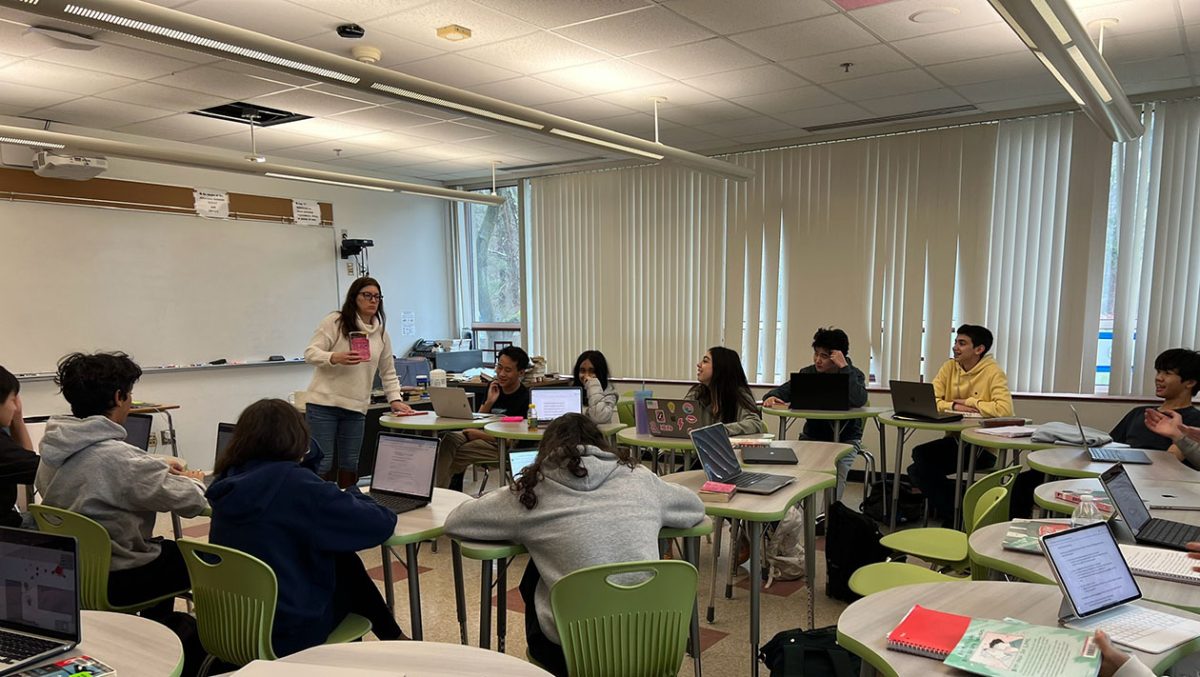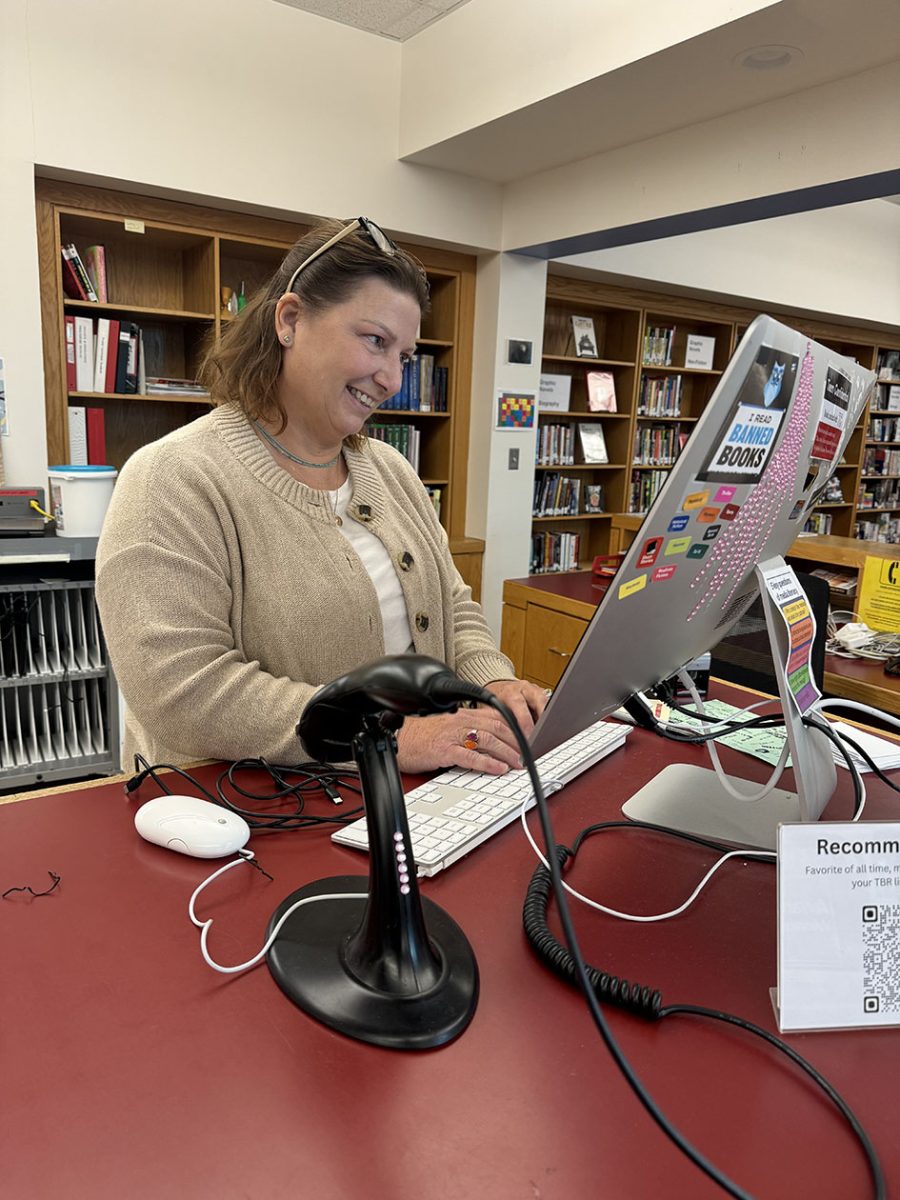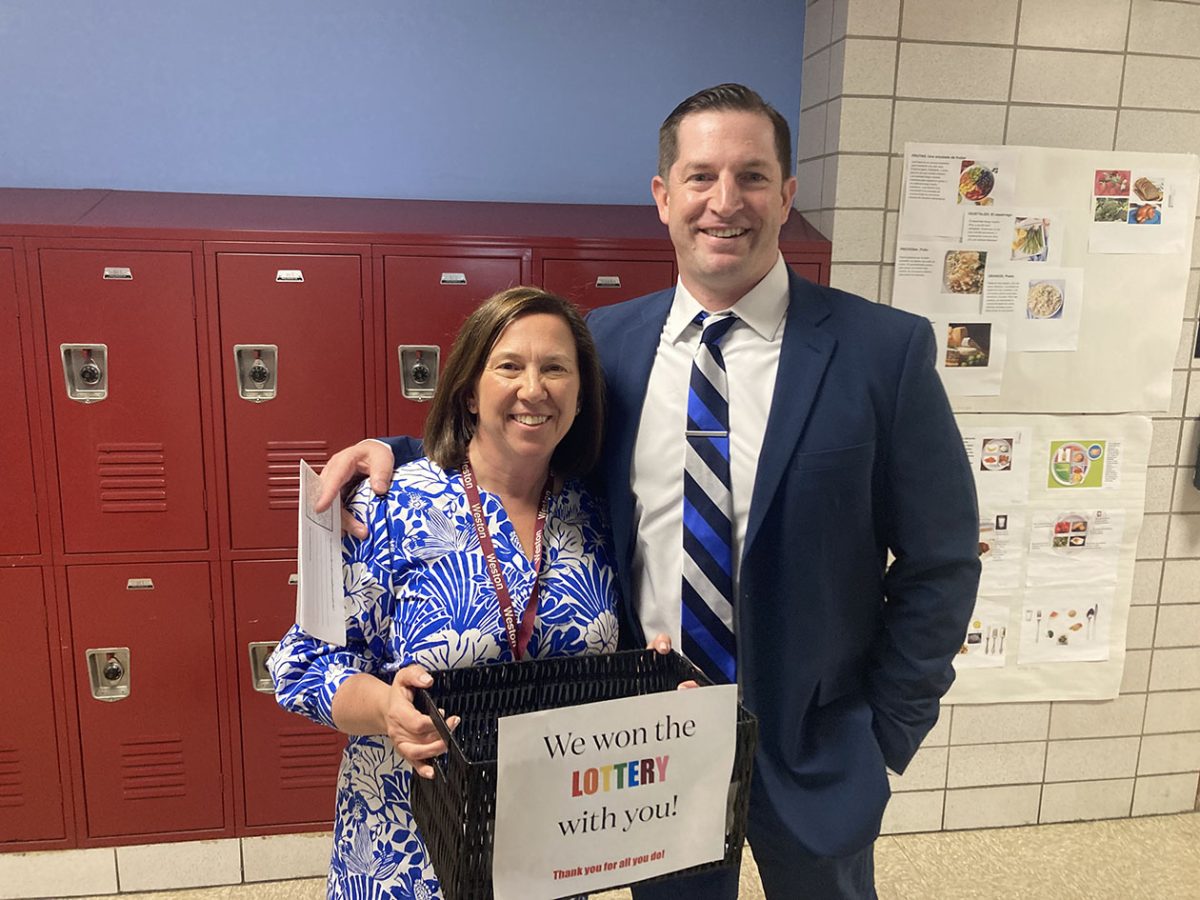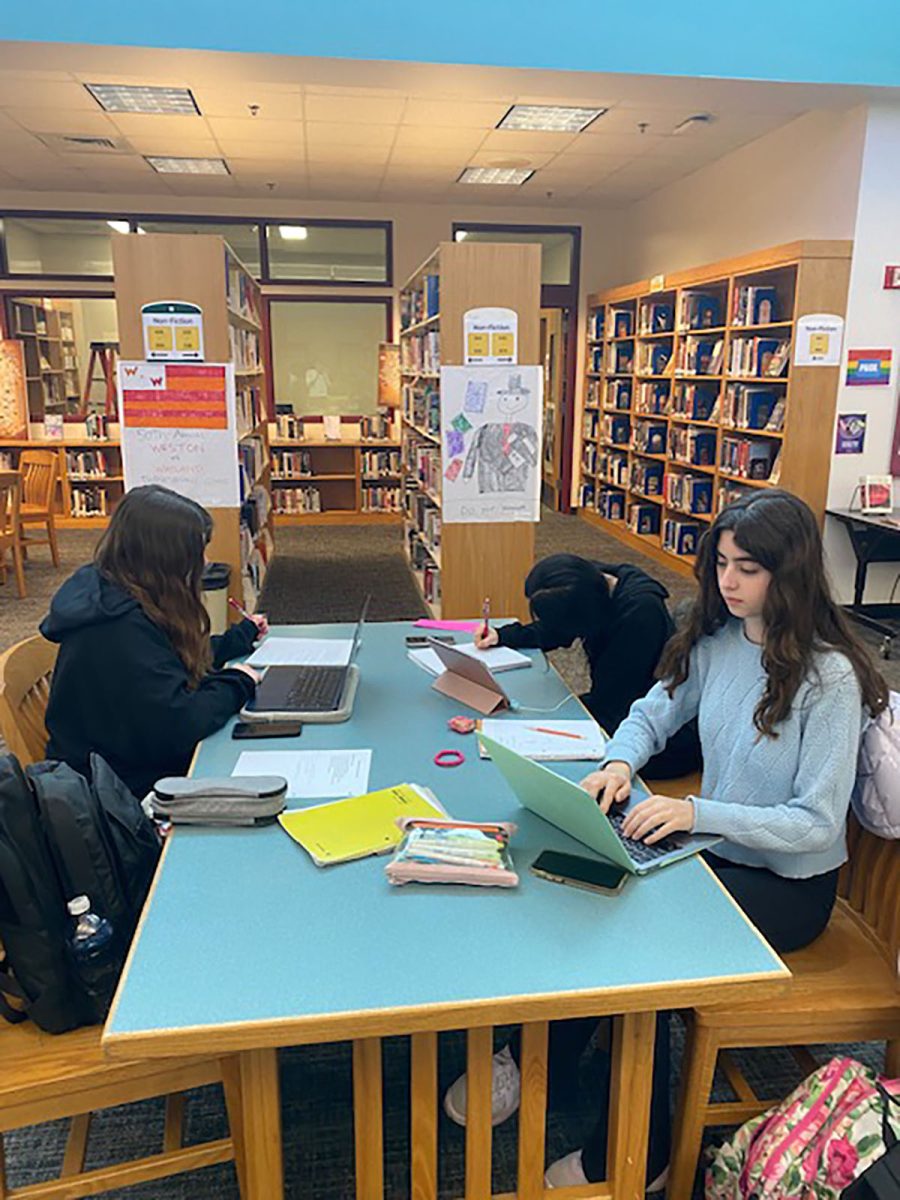Artificial intelligence (AI) is a computer system that can mimic intelligent human behavior. It is also a tool constantly evolving into new forms. With the recent boom in popularity and spread of its negative and positive effects on education and other fields, AI has left many students and faculty with their own opinions on what types of AI they are allowed to use in school, if any at all.
“I think AI shouldn’t be used in school; school is for learning and AI kind of takes away from that,” junior Hailey Pelzar said.
Not everyone is as certain about AI’s use as Pelzar, but the Weston school district has developed a Responsible Use Guideline included in the Student Handbook that states that any AI use on assignments for school is prohibited unless a teacher has specifically permitted it. Many educators have concerns about students’ misusing AI and are not sure it belongs in the classroom at all, but some believe that AI can be used fairly if teachers supervise its use after determining that it is, in fact, beneficial to students’ learning.
“An appropriate use of AI is to use it as a tool and certainly as a springboard to start or refine research, especially in science,” forensics and chemistry teacher Jennifer Field said.
Some students express irritation over their peers who are using AI in unauthorized ways when compared to those who spend effort actually doing the work themselves.
“There are definitely benefits for [using AI],” junior Elizabeth D’Amaro said. “But people using it constantly for reasons they shouldn’t be definitely is frustrating as others are actually taking time out of their day to learn.”
Conversely, some students think that AI use should become more flexible at school, especially with less serious tasks like grammar.
“I understand where [teachers] are coming from, but if you use it in a way that just checks work and makes sure there’s no grammar mistakes, it could be fine,” freshman Sonny Garcia said. “A lot of [teachers] have just lost their trust in us because [others] use it for their own reasons.”
Students also believe that because AI is frequently used in real-world environments such as by adults at their workplaces, it’s not fair for similar AI use at school to not be allowed.
“I think it’s unfair because we’re kind of the only age group that doesn’t get to use AI because of school restrictions,” junior Ben Meade said. “I think it would be honestly more helpful if we could use it because adults have jobs and technology that use AI every day.”
While many students share this view about AI usage, educators point out that adults who have already learned about grammar and basic English skills may be able to use AI appropriately in their work and personal lives, but for students who are developing that knowledge, the use of AI tools can prevent that development.
“Discipline to discipline, AI is showing up in many different ways, and we are teaching many different skills,” English teacher and drama director Anne Isaacs said. “We feel it so much in the English department because the skills we are teaching [are] what AI is replacing.”
Students also have difficulty with trusting AI and its precision, even when asked to use it by a teacher.
“I’ve been asked to generate practice questions on AI [and] I don’t know how I feel about [it],” Pelzar said. “The questions that AI generates aren’t necessarily what we were specifically learning.”
The most common form of AI used for purposes like question generation would be ChatGPT. However, another prevalent issue is whether or not AI in the form of simple grammar correction or simple suggestions for improvement is appropriate, particularly in relation to the AI tool Grammarly.
“I think [effective use of Grammarly] requires the student to go back and look at what it is [correcting],” Isaacs said. “It can be tricky if you’re not really conscientious with how you’re using it.”
While it’s definitely hard to draw the line between appropriate and inappropriate, some teachers think the most important thing when it comes to AI use in school is communication.
“I feel like when you use [AI], you should be open about that,” English teacher Mike Kelley said. “If a student were to use it I would want to know that they used it and how they used it so I could make sure that they have the thinking skills necessary to do the work on their own.”







